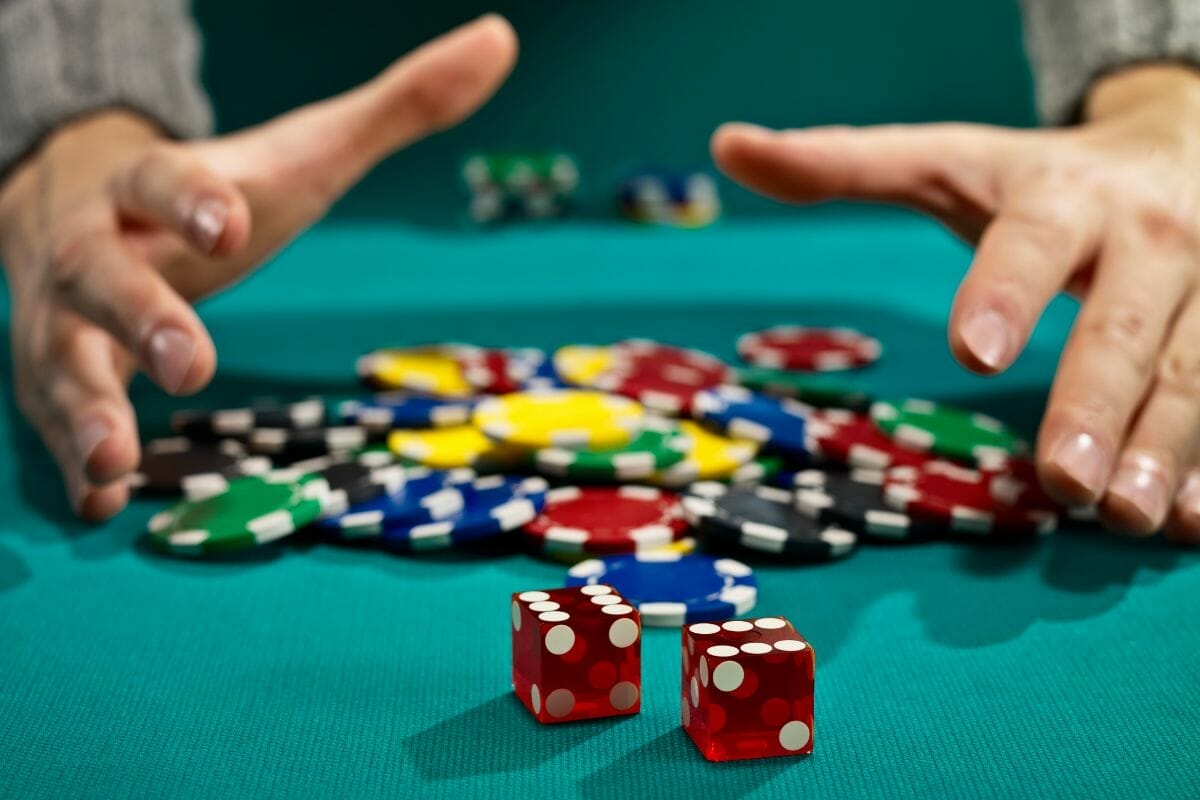Gambling is a common pastime in the United States, and in many ways the country has taken gambling to a whole new level – epitomized in towns like Las Vegas and Atlantic City.
However, there are still many states within the United States that consider gambling a bad thing, and have put laws in place to outlaw the concept in all walks of life.

But where is gambling illegal, and what are the reasons behind it?
Gambling In The United States
The United States has had a long history of gambling, despite its puritanical heritage – yet the relationship has still been fraught with conflict and uncertainty.
Colonial History
Games of chance came over with British settlers in the 17th century, and while attitudes to such games varied wildly between communities, there was no national – or territory-wide – legislation to prohibit it.
In the 1680s, old world ideas of class began to work their way into the New, with the upper classes in Virginia cornering the market on horse racing, and the gambling therein.
This made gambling very much an elitist pastime in such regions, and very much mimicked the conditions of England.
This saw the rise in lotteries – which were found in 12 colonies all around the United States.
These were used as entertainment, fundraising events, and as a means of establishing communal spirit – despite the relatively classist implications upon which this ‘new’ era of gambling was founded on.
Later History
As the decades progressed, so did society, and New Orleans quickly became the center of gambling within the United States – with people of all classes and creeds partaking in this shared pastime.
However, after religious outcry against the sinfulness of gambling, it was made illegal in much of the south, forcing gamblers to switch their attention to the burgeoning riverboat gambling scene – where gambling could be legally permitted, as the only law on the water was the word of the captain.
When the California gold rush of the 1800s came around, attitudes towards gambling had changed again – mainly due to the lawless nature of these mining settlements.
There, prospecting for gold and gambling it away were seen as two sides of the same coin – acts of manliness and modernity that the law and religious morality had no part in (see also “Gambling At Home: Is It Against The Law?“).
What States Have Banned Gambling?
In contemporary American society, most states are on the same page regarding legalities surrounding gambling, although there are minor differences with regards to age limits and legislation.
That being said, there are still a few states that outright ban gambling, making it illegal within the confines of the state.
Hawaii
Perhaps surprisingly, Hawaii is one of the few American states that has made gambling completely illegal right across the board.
This means that charitable, pari-mutuel, lotteries, commercial, tribal, racetrack, online, and sports betting are all considered illegal in the region (see also “Can Sports Betting Be A Career?“).
One main reason why Hawaii has outlawed all forms of gambling on the islands, is that the country wants to preserve their purity as a peaceful, tourist friendly place to visit.
In Hawaii, the crime of gambling is considered a misdemeanor, but depending on the extent of the crime, it can result in $2000 to one year in jail.

Utah
However, perhaps not so surprisingly, the state of Utah has also prohibited all acts of gambling within the state.
This is due to the deeply Christian society that inhabits the state of Utah, namely the Mormons, whose beliefs prohibit them from gambling, drinking alcohol, and using recreational drugs.
Since the founding of the state in 1850, Utah has had strict restraints on gambling.
However, despite the relatively tight restrictions on adult recreational activities, the state remains a popular place to visit for Americans and tourists alike – namely Salt Lake City, the hub of the Mormon church.
However, if you are caught gambling in Utah, the penalty can be steep, depending on the amount of money won or exchanged. If the sum of money is $500 or under, then it is considered a class-B misdemeanor.
However, if the sum exceeds $5000 dollars, then it is considered a second degree felony – which can lead to jail time.
American Samoa
American Samoa is another US territory that has all but outlawed gambling within the region – although they do allow for charitable gambling due to the benefits it can have for raising money and various causes.
This is illegal in this region due to issues surrounding religious and moral beliefs, which deem gambling to be immoral and dangerous to wider society.
Which States Have The Least Restrictions?
If there is one thing that can be said about the United States, it is that it is a country of extremes – in the best possible way – and this means that there are huge gaps in laws depending on the state you are in.
With gambling rules, there are some states where they allow every form of gambling – while of course observing things like minimum ages and specified locations, such as casinos.
The states with the least gambling restrictions include:
- Delaware.
- Illinois.
- Indiana.
- Iowa.
- Louisiana.
- Michigan.
- New Jersey.
- New York.
- Pennsylvania.
- West Virginia.
States that are close runners up – with only minor legal restrictions – include:
- Arkansas.
- California.
- Colorado.
- Florida.
- Maryland.
- Massachusetts.
- Nevada.
- New Hampshire.
- New Mexico.
- Puerto Rico.
- Rhode Island.
- South Dakota.
- Virgin Islands (US).
- Washington.
Final Thoughts
And there we have it, everything you need to know about gambling in the United States, and where in the country it is still considered illegal!
It’s true that the United States has taken gambling to exciting, new heights. However, there are still many states that consider it immoral, dangerous, and as such have classified it as illegal.
So if you want to visit the US and do some gambling on your trip, then you might want to avoid some of these states!



![How To Be A Successful Gambler [Ultimate Guide]](https://edwptufa3rf.exactdn.com/wp-content/uploads/2023/01/How-To-Be-A-Successful-Gambler-Ultimate-Guide.jpg?strip=all)